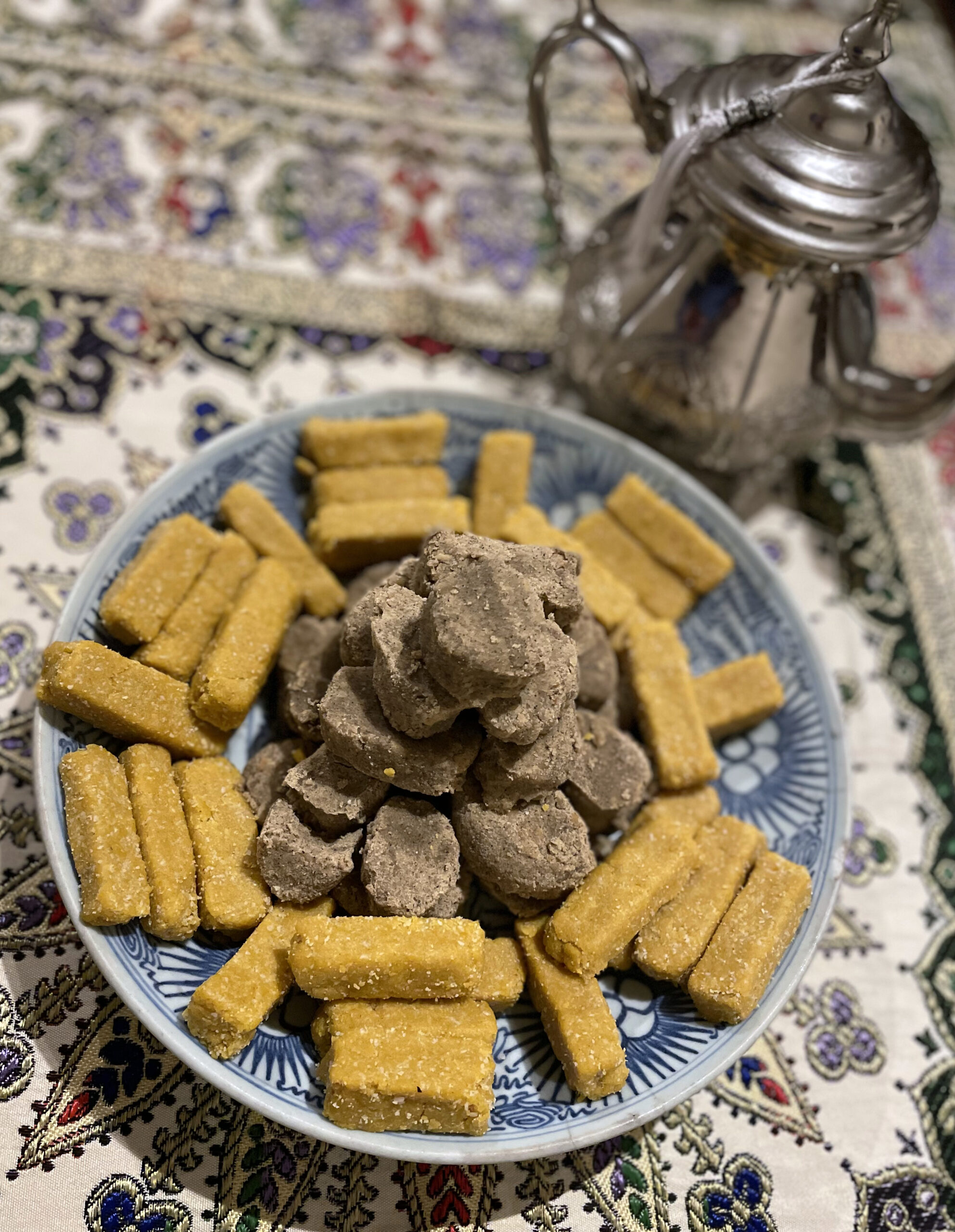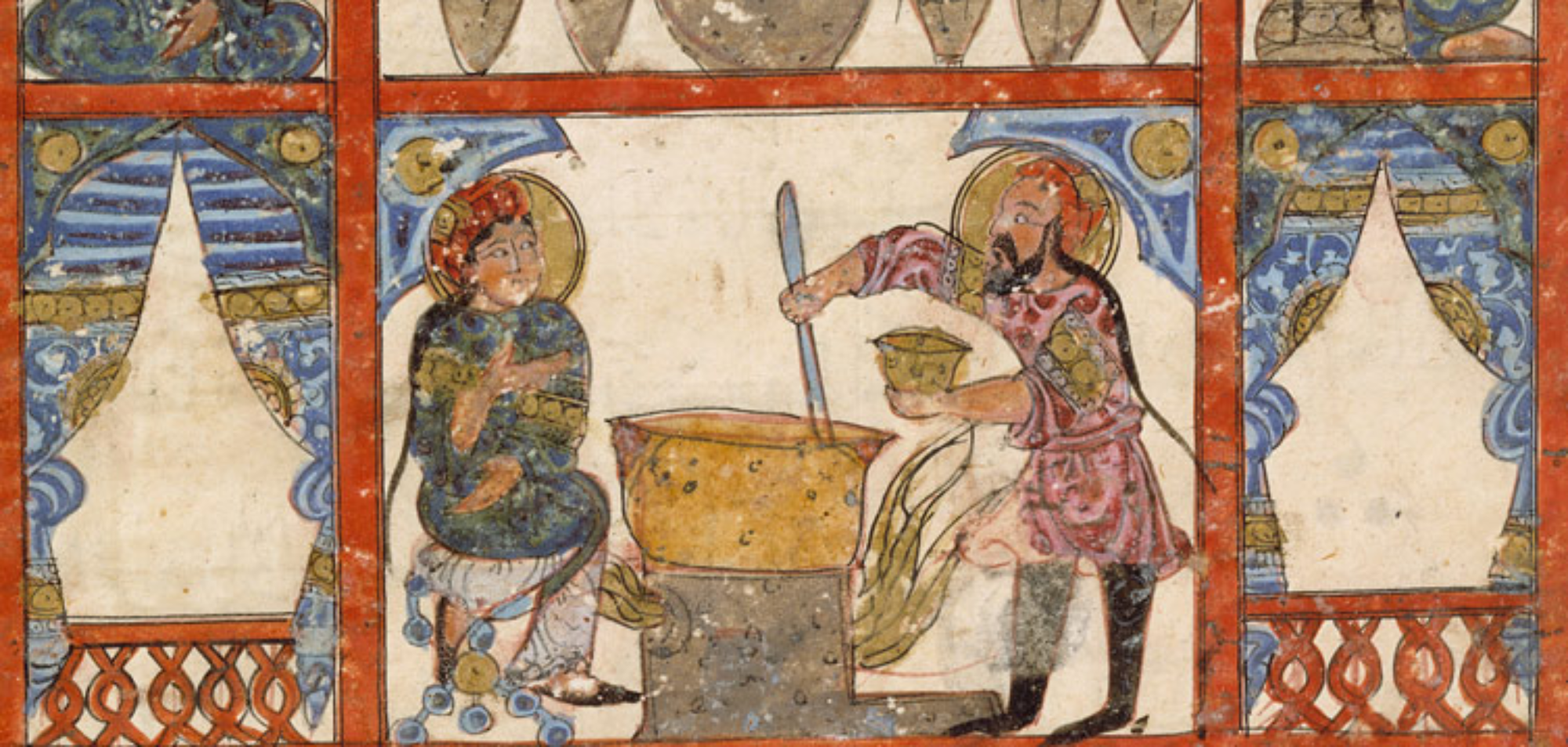For those dreary days, when one sweet just isn’t enough to get you through, here are two delicious biscuits from 13th-century Muslim Spain. And even if you don’t have an oven, that is no excuse for not making them since they don’t require baking. But, as with most things in life, there is a trade-off in that they require a bit more elbow grease! The first recipe is for hadīdāt (حديدات), which can be translated as ‘the iron ones’, from the Arabic word for ‘iron’, hadīd (حديد), for reasons that will soon become apparent. The basic ingredients are toasted flour, skimmed honey (i.e. honey from which the scum has been removed after heating), and oil (walnut works particularly well). The mixture is kneaded into a stiff dough, together with pepper, as well as other spices, and shaped into biscuits. As a result of the added pepper, they will look like pieces of iron, hence their name. Brace yourself, though, since that peppery sweetness has quite a kick!
The second recipe is for biscuits called fālūdhaj (فالوذج), which, rather confusingly, share their name with what is usually a starch pudding — a linguistic problem that one should carefully ponder when savouring them. These biscuits are also made with honey, but this time, starch is added, as well as ground almonds and, of course, saffron. The mixture is shaped into mini-loaves, which should look like little gold ingots.
The most time- and labour-consuming part of the process is the careful shaping of each biscuit, which gives the wrists and forearms a pretty good work-out! However, rest assured, the effort you put in is rewarded once you taste the biscuits. Of course, the only accompaniment worth having with them is some freshly brewed mint tea!

